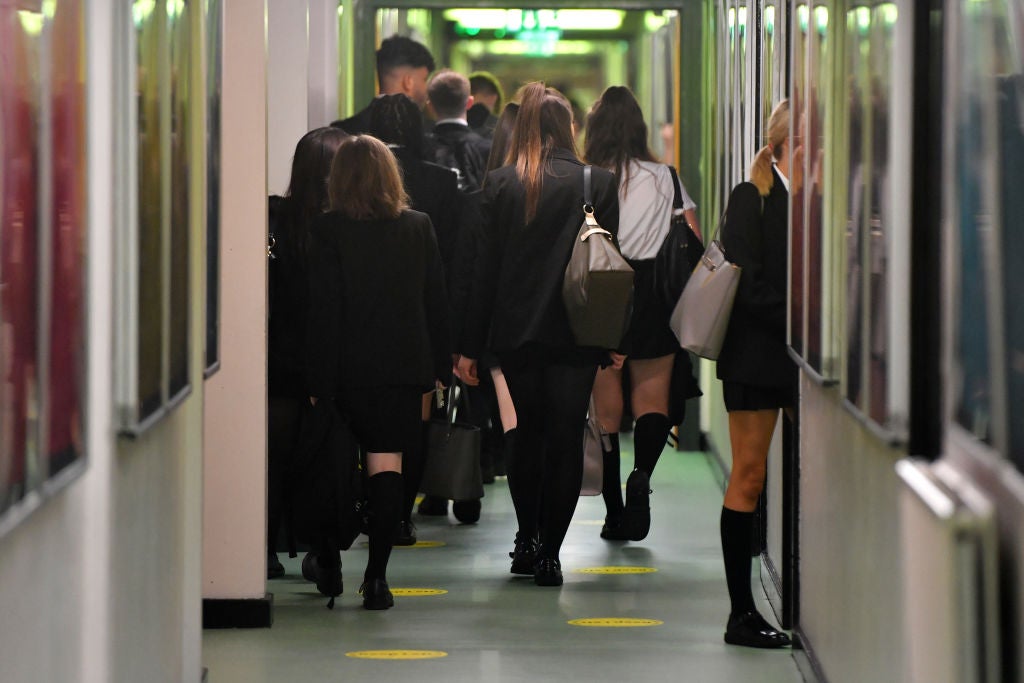It’s absurd to take school funding from deprived areas when they need it most
Our children have had their education severely disrupted – ensuring that our schools have the funding in place to operate properly has never been more important


Your support helps us to tell the story
From reproductive rights to climate change to Big Tech, The Independent is on the ground when the story is developing. Whether it's investigating the financials of Elon Musk's pro-Trump PAC or producing our latest documentary, 'The A Word', which shines a light on the American women fighting for reproductive rights, we know how important it is to parse out the facts from the messaging.
At such a critical moment in US history, we need reporters on the ground. Your donation allows us to keep sending journalists to speak to both sides of the story.
The Independent is trusted by Americans across the entire political spectrum. And unlike many other quality news outlets, we choose not to lock Americans out of our reporting and analysis with paywalls. We believe quality journalism should be available to everyone, paid for by those who can afford it.
Your support makes all the difference.As a member of the Public Accounts Committee (PAC), I am one of the MPs responsible for ensuring that the government is spending taxpayers’ money in the most efficient and effective way possible.
But a report published in July by the National Audit Office found that the new national schools funding formula – implemented in 2018 by the Department for Education – has, distressingly, led to funds being taken away from the most deprived schools and put into the hands of the least deprived ones.
Under the new formula, funding is largely determined by how many pupils each school has, with the most deprived local areas – in theory – therefore receiving more per-pupil funding than less deprived areas. While the formula was designed to be more transparent, consistent and fair, in reality it has meant that some local areas and schools have fared worse than others.
Between 2017-18 and 2020-21, average per-pupil funding in the most deprived fifth of schools fell, in real terms, by 1.2 per cent. By contrast, for the least deprived fifth of schools per-pupil funding actually increased by 2.9 per cent in real terms.
So, while most London boroughs and cities with relatively high levels of deprivation, such as Nottingham and Birmingham, have experienced real-terms falls in per-pupil funding between 2017-18 and 2020-21, areas with relatively low levels of deprivation, such as the southwest, East Midlands and southeast, have seen the largest real-terms growth in per-pupil funding.
This is not the first sign of a disregard for the circumstances of the most disadvantaged of our young people. The government has recently been at pains to stress that the state’s finances cannot be used to solve every emerging issue, despite the cost of living threatening to devastate vulnerable families and businesses this winter. But another recent PAC inquiry, into the voucher scheme set up to replace free school meals that eligible pupils were missing out on as schools were closed for months in the pandemic, found that not only were poorer families left waiting an unacceptably long time for essential food vouchers, but the public was not getting a good deal.
The Department for Education failed to ensure that the terms of the free school meals scheme contract provided the taxpayer value for money. To hear that the contractor Edenred enjoyed eyewatering profits despite the clear shortcomings in delivery adds appalling insult to injury for struggling families who are currently having other vital support measures, such as the universal credit uplift, stripped away.
Part of the issue lies in the impact of falling rolls. We know of schools whose numbers are falling as a result of local population changes, however these schools still have vast fixed costs which must be met – costs born out of, for example, employing teaching assistants and cleaners. However, per the formula, they are seeing their funding fall significantly, leaving them in desperate financial situations. For small schools, such as those with a single-form entry, the financial impact may be disproportionately higher.
During the inquiry, while Department for Education officials were keen to stress that the national funding formula provides a lump sum for each school, irrespective of size, and to highlight the existence of the “falling rolls fund” as something that local authorities can fall back on, we on the PAC remained extremely disappointed at what we feel was a fundamental lack of recognition of the impact its decisions have had on individual schools and their pupils.
Suffice to say, this is a situation that requires attention, and that is why we have called on the Department for Education to provide, by the end of March 2022, an evidence-based assessment of whether there is enough assistance for schools whose student rolls are falling, and explain clearly what actions are being taken in redress.
Sarah Olney MP is a member of the Public Accounts Committee with a special interest in education
Join our commenting forum
Join thought-provoking conversations, follow other Independent readers and see their replies
Comments